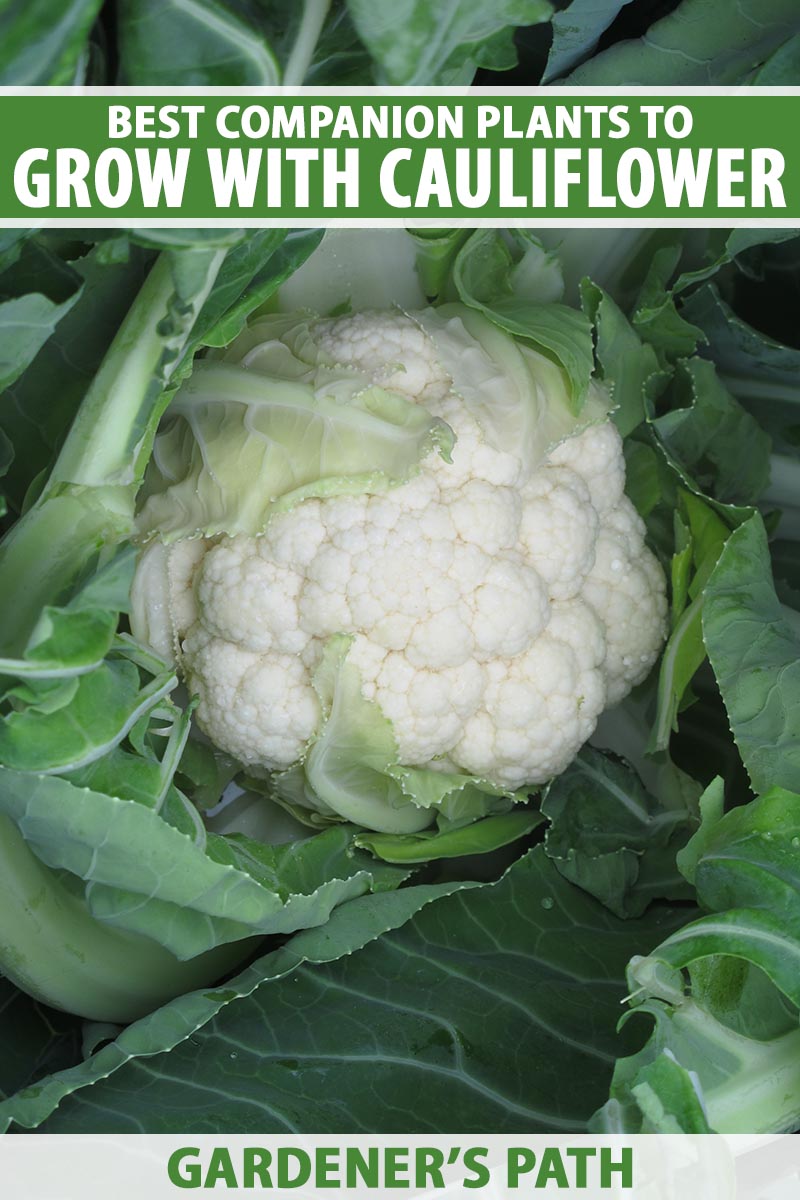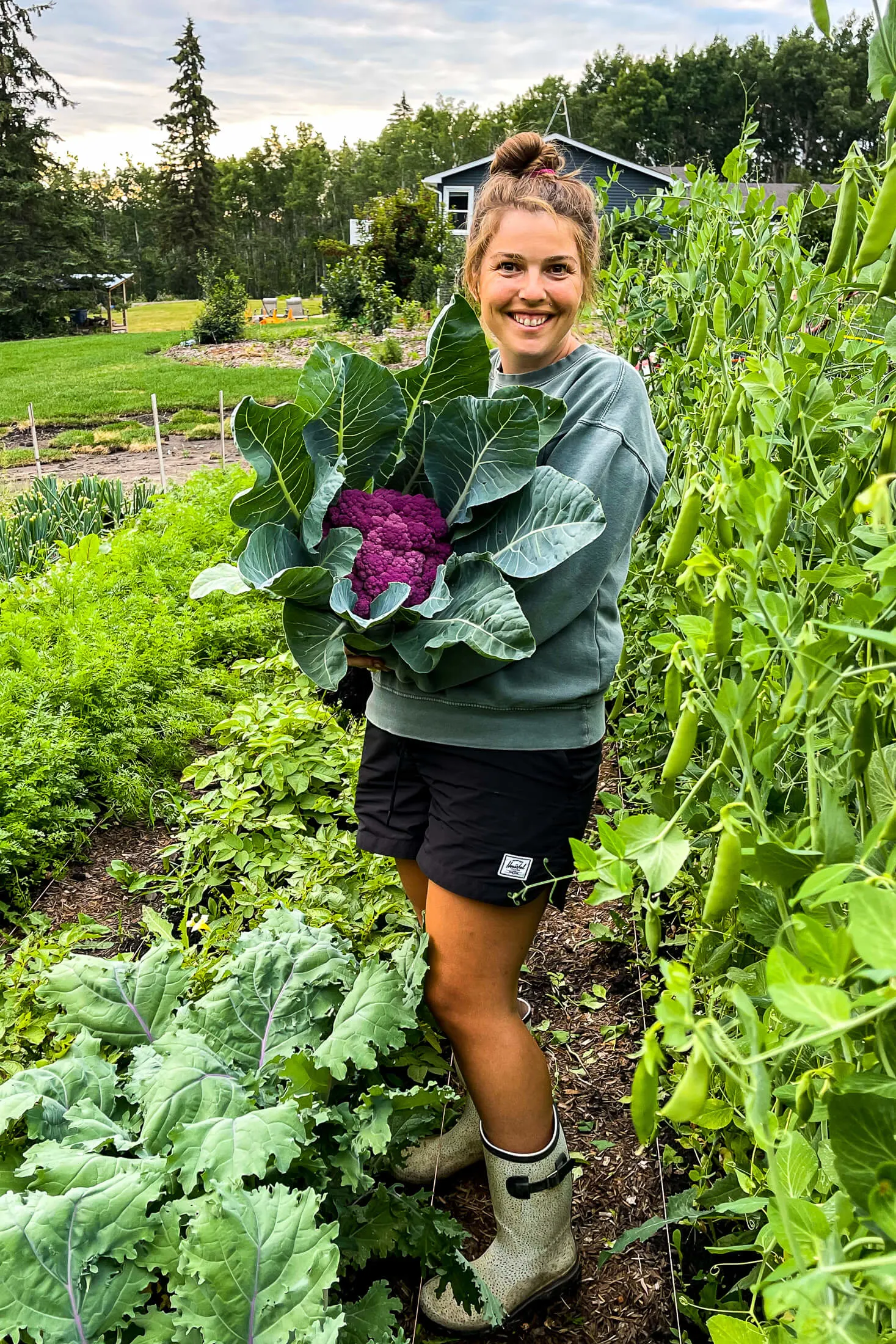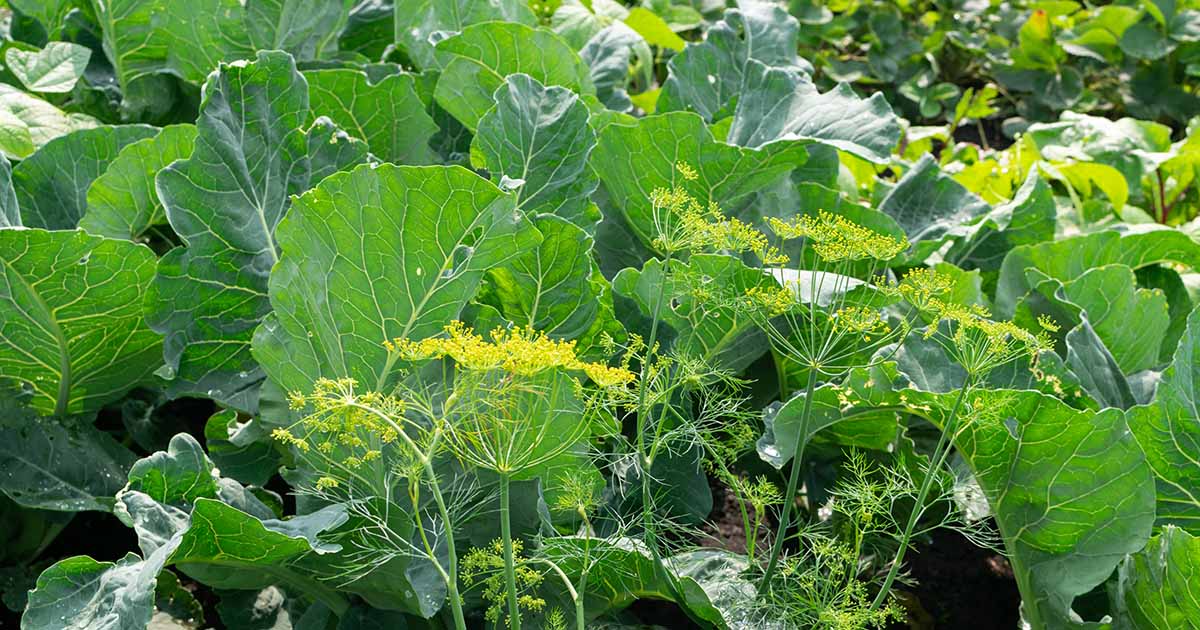Companion Plants That Will Help Your Cauliflower Thrive
Companion Planting That Will Help Your Cauliflower Thrive
Cauliflower is a delicious and nutritious vegetable that can be grown in many different climates. However, like all plants, cauliflower can be susceptible to pests and diseases. Companion planting is a great way to help protect your cauliflower plants and improve their overall health.
Companion planting is the practice of planting different types of plants together in order to create a mutually beneficial relationship. Some plants attract beneficial insects, which help to control pests. Other plants release chemicals that deter pests or diseases. Still others have deep roots that help to improve the soil drainage and aeration.
When choosing companion plants for cauliflower, it is important to consider the following factors:
- Plants that attract beneficial insects. Beneficial insects, such as ladybugs, lacewings, and parasitic wasps, help to control pests that can damage cauliflower plants. Some good companion plants for attracting beneficial insects include:
- Marigolds
- Nasturtiums
- Calendula
- Chamomile
- Dill
- Lovage
- Plants that deter pests. Some plants release chemicals that deter pests from feeding on cauliflower plants. Some good companion plants for deterring pests include:
- Garlic
- Onions
- Chives
- Mint
- Sage
- Thyme
- Plants that improve soil drainage and aeration. Cauliflower plants prefer well-drained soil. Some good companion plants for improving soil drainage and aeration include:
- Lettuce
- Spinach
- Cucumbers
- Radishes
- Beans
- Peas
In addition to choosing companion plants that offer specific benefits, it is also important to avoid planting cauliflower near plants that can compete with it for nutrients or water. Some plants that should not be planted near cauliflower include:
- Other brassicas, such as broccoli, cabbage, and Brussels sprouts
- Tomatoes
- Potatoes
- Melons
- Squash
Here are some specific companion planting combinations that can help your cauliflower thrive:
- Cauliflower and beans. Beans fix nitrogen in the soil, which can help to improve the growth of cauliflower plants. Beans also attract beneficial insects, such as ladybugs and lacewings.
- Cauliflower and carrots. Carrots help to repel the cabbage moth, a common pest of cauliflower plants. Carrots also prefer well-drained soil, which is ideal for cauliflower plants.
- Cauliflower and celery. Celery helps to repel the aphid, another common pest of cauliflower plants. Celery also has deep roots that help to improve the drainage and aeration of the soil.
- Cauliflower and spinach. Spinach helps to suppress the growth of weeds, which can compete with cauliflower plants for nutrients and water. Spinach also grows quickly, so it can be planted as a cover crop to protect cauliflower plants from the cold.
- Cauliflower and marigolds. Marigolds attract beneficial insects, such as ladybugs and lacewings, which help to control pests that can damage cauliflower plants. Marigolds also have strong roots that help to break up compacted soil.
By planting companion plants with your cauliflower, you can help to improve their overall health and productivity. Companion planting is a simple and effective way to naturally protect your plants from pests and diseases, and it can also help to improve the quality of your harvest.
Cauliflower is a delicious and versatile vegetable that can be enjoyed in many different ways. But did you know that companion planting can help you grow healthier and more productive cauliflower plants?
Companion planting is the practice of planting certain types of plants together for their beneficial effects on each other. Some of the best companion plants for cauliflower include:
- Beans: Beans fix nitrogen in the soil, which can help to improve the growth of cauliflower plants.
- Celery: Celery deters pests such as cabbage moths and flea beetles.
- Onions: Onions release sulfur compounds that can help to repel pests and diseases.
- Marigolds: Marigolds release a scent that deters pests such as aphids and whiteflies.
- Nasturtiums: Nasturtiums attract beneficial insects such as ladybugs and lacewings, which can help to control pests.
If you're interested in learning more about companion planting with cauliflower, I recommend visiting Gardenia Inspiration. This website has a wealth of information on the topic, including a list of the best companion plants for cauliflower, as well as tips on how to plant and care for these plants.
FAQ of companion planting with cauliflower
- What are good companion plants for cauliflower?
Some good companion plants for cauliflower include:
- Beans: Beans fix nitrogen in the soil, which can benefit cauliflower. They also attract beneficial insects that help to control pests.
- Beets: Beets help to suppress weeds and improve the drainage of the soil. They also attract beneficial insects.
- Celery: Celery helps to repel pests such as cabbage moths and aphids. It also provides shade for cauliflower, which can help to protect it from the sun.
- Dill: Dill attracts beneficial insects that help to control pests. It also helps to improve the flavor of cauliflower.
- Garlic: Garlic helps to repel pests such as aphids, cabbage moths, and root maggots. It also helps to improve the flavor of cauliflower.
- What plants should I avoid planting near cauliflower?
Some plants that you should avoid planting near cauliflower include:
- Brassicas: Brassicas, such as broccoli, cabbage, and Brussels sprouts, are closely related to cauliflower and can attract the same pests and diseases.
- Corn: Corn can compete with cauliflower for water and nutrients.
- Potatoes: Potatoes can harbor the potato beetle, which can also damage cauliflower.
- Tomatoes: Tomatoes can attract the tomato hornworm, which can also damage cauliflower.
- How can I use companion planting to improve the growth and health of my cauliflower plants?
Companion planting can help to improve the growth and health of your cauliflower plants in a number of ways. For example, companion plants can:
- Repel pests and diseases.
- Improve the drainage of the soil.
- Suppress weeds.
- Improve the fertility of the soil.
- Provide shade.
- Attract beneficial insects.
- How far apart should I plant cauliflower plants?
Cauliflower plants need plenty of space to grow. They should be planted at least 2 feet apart, and 3 feet apart if you are growing large varieties.
- When should I harvest cauliflower?
Cauliflower is ready to harvest when the head is firm and compact. The curds should be white and free of blemishes.
Image of companion planting with cauliflower
- Cauliflower and beans. Beans are nitrogen-fixing plants, which means they can help to improve the soil quality for cauliflower. They also help to deter pests such as cabbage moths.

- Cauliflower and celery. Celery helps to repel pests such as aphids and cabbage worms. It also provides shade for cauliflower, which can help to prevent it from getting sunburned.

- Cauliflower and onions. Onions help to repel pests such as carrot flies and cabbage loopers. They also help to improve the flavor of cauliflower.

- Cauliflower and marigolds. Marigolds help to repel pests such as nematodes and whiteflies. They also help to attract beneficial insects such as ladybugs and hoverflies.

- Cauliflower and nasturtiums. Nasturtiums help to repel pests such as aphids and flea beetles. They also help to improve the flavor of cauliflower.

Post a Comment for " Companion Plants That Will Help Your Cauliflower Thrive"